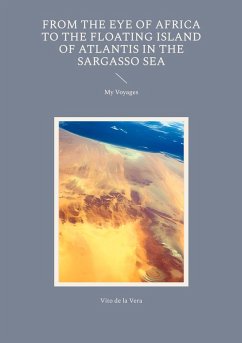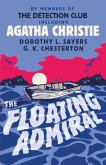One's search can sometimes go from one extreme to another. l and my fellows start off on our voyage researching a lost culture that had evolved at the Eye of Africa in Mauritania. When the Sahara had dried at the end of the Holocene Maximum the peoples of the western part of the Saharan savanna had congregated here and by a nearby river to escape the desert. Much like what happened in Egypt in the Eastern Sahara. These people gathered here evolved their own culture and started to sail out into the Atlantic finding the North Atlantic gyre becoming adept seafarers. What we found was that more drying and other disasters struck this culture, causing them to increasingly take to the sea and evolving floating islands in their dwindling rivers delta. In the end these islands took completely to the sea along with the entire culture becoming seaborne. What became clear to us from following the trail of this culture to Bermuda, the Azores and Madeira was that they had moved their floating islands to the calm waters of the Sargasso Sea building of floating culture here. We find that this oceanic culture had had contact with the bronze age cultures of the Eastern Mediterranean and been part of the trade network that sustained the bronze age cultures. This oceanic culture built on floating islands in the middle of the world ocean had been the basis of the myth of a great ocean kingdom that disappeared in a cataclysmic disaster. Thus, being the actual Atlantis described by Plato. Finally, we uncover that there is a clear connection between the fall of this culture of Atlantis and the sea peoples that arrived in the Eastern Mediterranean during the bronze age collapse.
Dieser Download kann aus rechtlichen Gründen nur mit Rechnungsadresse in A, B, BG, CY, CZ, D, DK, EW, E, FIN, F, GR, H, IRL, I, LT, L, LR, M, NL, PL, P, R, S, SLO, SK ausgeliefert werden.









